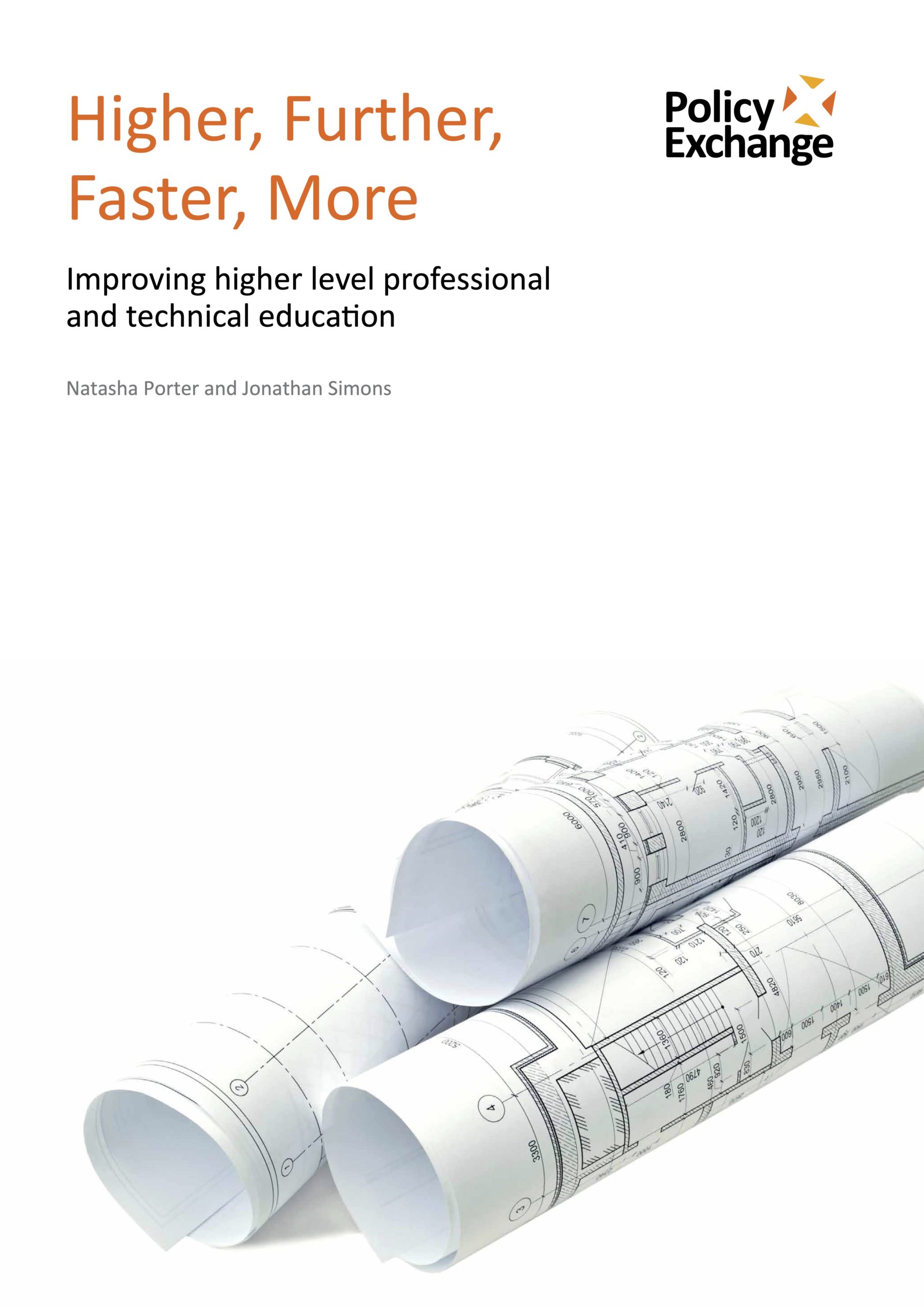
Higher, Further, Faster, More: Improving higher level professional and technical education
Up to half a billion pounds should be diverted from universities at the Spending Review to boost the quality of high level professional and technical courses in FE Colleges across the country.
Higher, Further, Faster, More says that, while UK universities are some of the best in the world, they are sitting on significant financial reserves, and public spending is currently skewed too much towards Higher Education to the detriment of Further Education. This is hampering the growth of the training desperately needed for a range of technical and professional jobs in the UK labour market.
The report finds that funding for higher education institutions has increased markedly since the introduction of tuition fees, with a rise in overall income of 26% since 2009/10 and universities sitting on £12.3bn of unrestricted reserves – worth around 48% of the entire annual budget for the HE sector. By contrast, Further Education colleges have seen a significant drop in their revenue, with the adult skills budget having been cut by 24% since 2009-10. According to the National Audit Office, more than 1 in 4 of the entire FE college network could effectively go bankrupt within a year.
It calls for BIS to redirect up to £532m of the Higher Education Funding Council (HEFCE) grant to improve the quality of higher level technical qualification on offer at FE Colleges, National Colleges and Institutes of Technology. Any remaining grant funding in this area should be directed towards universities with the smallest financial reserves.
The report also proposes an expansion of the university student loan system, as well as the introduction of maintenance support, to FE students. This would mean that for the first time all young people will have equal access to finance to support further study, whether they choose a university or a high quality technical pathway
The paper points to a number of startling statistics to highlight the lack of technical graduates in the UK and the impact this could have on the future of the labour market:
- The Royal Academy of Engineering forecasts that the UK economy requires 830,000 more engineers by 2020
- 28% of firms who need technicians qualified in science, technology and engineering or maths already report difficulty in recruiting
- 20% more construction staff are required in London and the South East from 2014-17 compared to 2010-13, with a particular focus on skilled construction workers
The report makes a number of other recommendations including:
- The ability for the new Institutes of Technology, announced in the Government’s recent Productivity Plan, to award their own technical degrees rather than have to partner with a university
- The expansion of Industrial Partnership bodies – groups of employers in specific sectors – to be the main route to design and approve all new technical qualifications, including the new degree Apprenticeships


